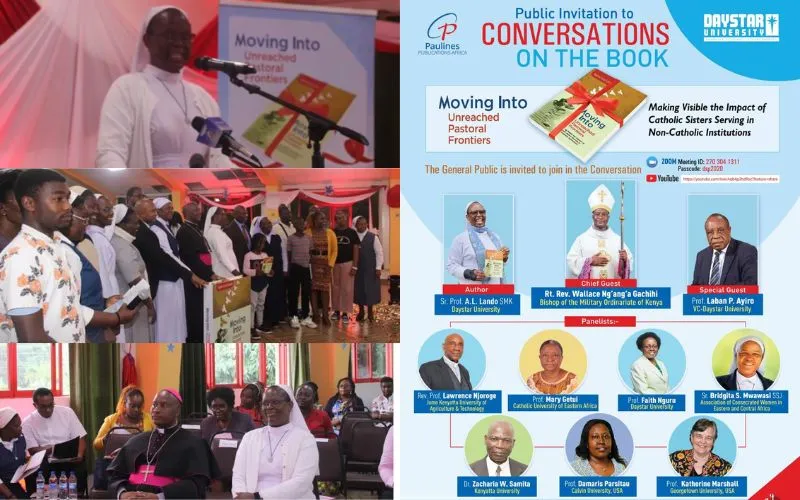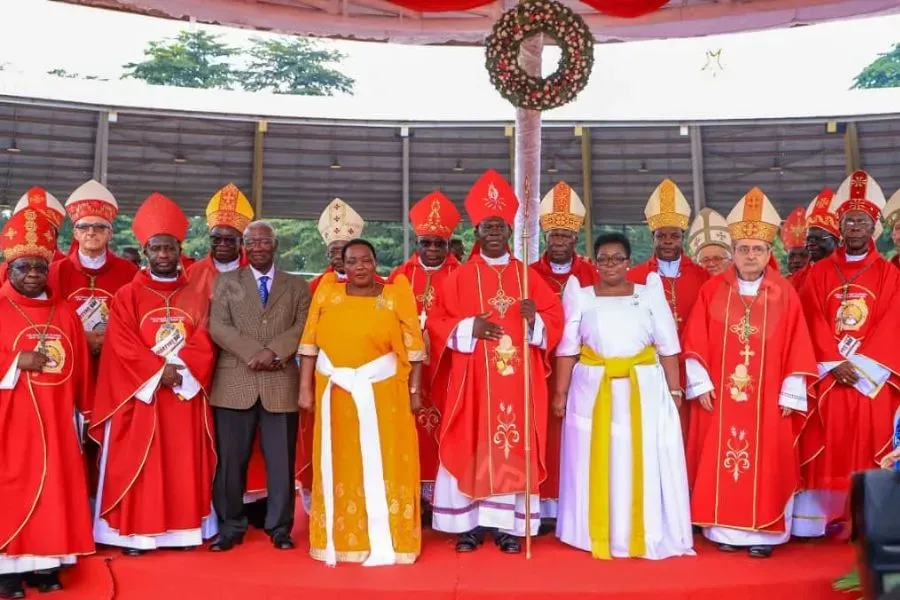She described what Catholic Sisters endure as “a very unfortunate reality,” adding, “We must acknowledge that it exists and speak out. I think Sister Lando is very brave to be able to highlight this challenge because this is a situation that Catholic Sisters have continued to grapple with in silence.”
Prof. Parsitau underlined the need for the Church to address power hierarchies and to protect women Religious from all forms of abuses.
The US-Based Kenyan don observed that outside Catholic institutions, women Religious are most vulnerable. In non-Catholic institutions, she said, Catholic Sisters are away from spaces that allow them to feel safe and comfortable.
“I call upon those institutions to put mechanisms in place to ensure that these Sisters are respected. Every institution should have a sexual violence policy that should protect women that work there,” Prof Parsitau appealed, adding that there should be counselling and support for survivors of abuse.
The book “Moving into the Unreached Pastoral Frontiers: Making Visible the Impact of Catholic Sisters working in non-Catholic Institutions” is the latest by Sr. Lando, the widely published University professor.
(Story continues below)
Published by Paulines Publications Africa (PPA), the book is her attempt to shine a light on the experiences and impact of women Religious serving in non-Catholic institutions, especially within the Eastern and Central regions of Africa.
The challenges of women Religious are diverse, including lack of Eucharistic celebrations and access to other Sacraments, mistreatment by those in authority at their places of work, as well as being perceived as “outsiders” in some of the institutions. Others experience sexual abuses, and other forms of abuses, and are unfairly denied promotions at their workplaces.
Speaking during the October 30 event at Paulines Communication Centre, the Secretary General of the Association of Consecrated Women in Eastern and Central Africa (ACWECA), Sr. Bridgita Mwawasi emphasized that Sr. Lando’s book is the first step towards making the work of Catholic Sisters visible.
“Many of our Sisters serve in places where there is no government. They go there motivated by service to humanity rather than the desire to be seen or heard. Their work remains invisible. We do not hear their stories, yet they are the people making the greatest impact on the ground,” Sr. Bridgita said.
Asked what the Church can do to support women Religious serving in non-Catholic institutions within the ACWECA region, the Kenyan member of the Congregation of the Sisters of St. Joseph of the Catholic Archdiocese of Mombasa (SSJ) said, “The Church must have a deliberate program for these Sisters. Include them in pastoral plans of the Dioceses and Congregations.”
“At ACWECA we are beginning to think critically about this pastoral gap, to strategically map out where these Sisters are, and to ensure that we have services for them. We must ensure that we have programs that not only target them but also those they serve,” she said.
Sr. Bridgita shared that while Catholic schools allow other faith leaders to come in and to offer their members pastoral care, the same cannot be said of Catholics in all non-Catholic institutions.
In his address at the book discussion, Fr. Prof. Lawrence Njoroge, who lectures at Jomo Kenyatta University of Agriculture and Technology (JKUAT) lauded what he described as an ecumenical understanding at the Kenyan institution where he said students and staff have organized themselves in Small Christian Communities and celebrate Holy Mass freely.
“I however know of a university, one very close to JKUAT, that would never allow for Catholic presence, either of a Priest or a Sister,” Fr. Njoroge said.
He proposed that conversations be initiated between managements of non-Catholic institutions and their Catholic counterparts before Sisters are sent there to prevent future instances of religious segregation.
Also contributing to the book conversation, the Vice Chancellor of Daystar University, Prof. Laban Ayiro, lauded the commitment of Sr. Lando to making the impact of Catholic Sisters visible in her book.
Prof. Ayiro noted that by focusing on the work of women Religious in non-Catholic institutions, the book challenges traditional narratives, and brings attention to what he described as vast pastoral frontiers.
The Kenyan professor highlighted the various instances in which Sr. Lando faced opposition at Daystar University just because she was a Catholic Sister. This included her appointment as the university’s director of research, following which Prof. Ayiro says he was told he was making “a huge mistake.”
But Sr. Lando had performed exemplarily in the position, Prof. Ayiro said, and added, “Today, research at Daystar University is alive. Through her efforts, we managed to get a research van. We made so many networks and so many conferences, and I want to thank Sister Lando for that.”
He said that he was mulling over assigning Sr. Lando to a more senior position at the university. “This is not because of anything else, but her output… Sisters do deliver,” Prof. Ayiro said.
He challenged future researchers on the issues raised in Sr. Lando’s book to “go into intellectual caves” and chronicle experiences of Catholic Sisters on a broader geographical scope to provide a more comprehensive understanding of the global impact of women Religious.
Sr. Lando’s book is applicable in community engagement, Prof. Ayiro noted, and explained, “The experiences of Sisters can serve as models for how faith-based organizations can engage effectively with secular institutions, advocating for social justice and community well-being.”
“Life is about service. And the services that the Sisters are providing must be brought to the fore,” Daystar University VC said, adding that the book could also guide pastoral leaders in understanding the challenges faced by religious individuals in non-Religious contexts, potentially informing training and support systems.
The book, Prof. Ayiro further said, is applicable in interfaith dialogue in addressing common societal issues, fostering common understanding and unity in what the Kenyan professor described as “increasingly diverse communities.”
Agnes Aineah is a Kenyan journalist with a background in digital and newspaper reporting. She holds a Master of Arts in Digital Journalism from the Aga Khan University, Graduate School of Media and Communications and a Bachelor's Degree in Linguistics, Media and Communications from Kenya's Moi University. Agnes currently serves as a journalist for ACI Africa.








